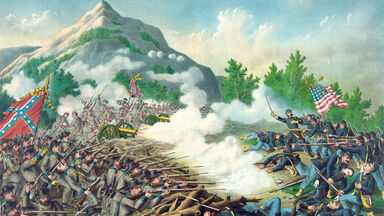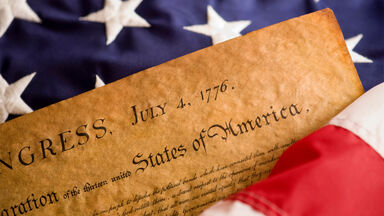Instead of accepting the Constitution upon the condition of amendments, - in which way they might very likely have secured large concessions, - the Anti-Federalists stood for unconditional rejection, and public opinion, which went against them, proved that for all its shortcomings the Constitution was regarded as preferable to the Articles of Confederation.
He was on the committee which drafted the Declaration of Independence, and also on that which drafted the Articles of Confederation.
It was largely through his efforts that the General Court in 1784 rejected the amendment to the Articles of Confederation authorizing Congress to levy a 5% impost.
It was too radically different from the Articles of Confederation.
By the Articles of Confederation and Perpetual Union adopted by the Continental Congress in 1777, and in effect in 1781-1789, the states bound themselves in a league of common defence.





